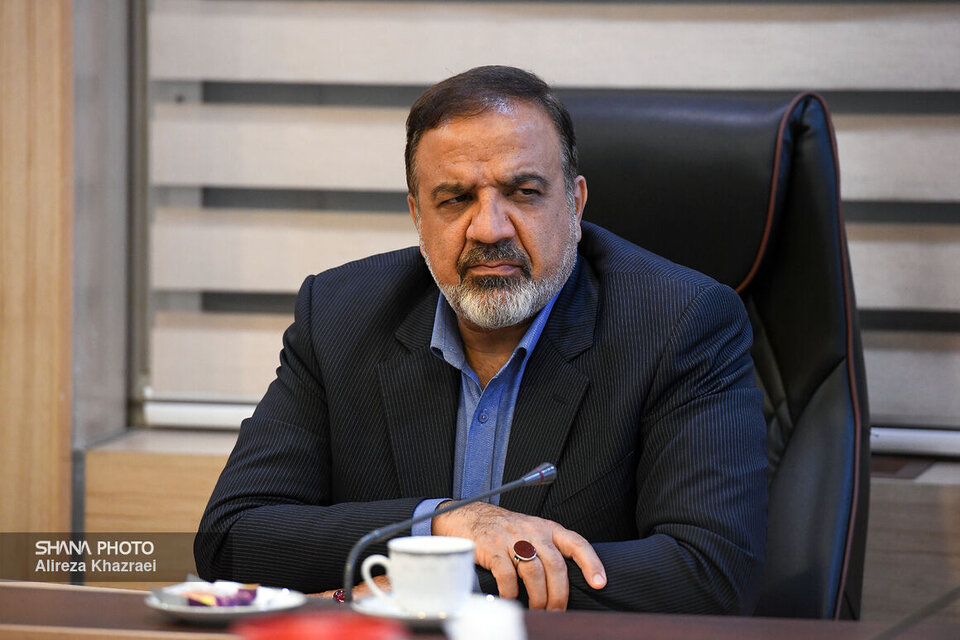Majid Boujarzadeh emphasized the need for coordination and optimal use of existing capacities within the oil industry’s PR units during a Wednesday meeting of the Public Relations Coordination Council. He stated that these councils were established to enhance synergy and strengthen cohesion among the oil industry’s PR departments.
Highlighting the capabilities of these units, Boujarzadeh added that PR departments must support one another through constructive collaboration, information sharing, and diverse, accurate content production to defend their organizations. Only through empathy and teamwork can the oil industry’s broader objectives be properly conveyed to the public, he noted.
Stressing the importance of effective interaction among different sectors of the oil industry, Boujarzadeh said such cooperation not only strengthens internal communications but also plays a key role in conveying the industry’s achievements to the public.
Despite economic challenges, the petroleum industry has delivered vital services, including stable gas supply, power plant fuel, and gasoline during winter and Nowruz holidays, he said. These efforts must be properly communicated to the people.
Accurate, timely, and transparent dissemination of these achievements boosts public trust and fosters social optimism—a crucial responsibility of PR units, he added.
Boujarzadeh also highlighted PR’s role in promoting domestic capabilities and supporting national production, noting that Iran’s oil industry has achieved self-sufficiency in equipment production by backing knowledge-based and capable Iranian firms. PR units must raise public awareness of these technological advancements.
He emphasized the importance of cohesion among PR departments, stating that the council’s main goal is fostering effective collaboration and shared resource utilization. The council should facilitate idea exchange, experience sharing, and optimal use of available capacities.
Boujarzadeh called for structured, outcome-oriented planning in council meetings, noting that precise planning and regular sessions are crucial to achieving objectives. Members must deliver clear outcomes and report results to senior management.
He urged enhanced cooperation among PR units and stronger organizational positioning, stating that unity and empathy within PR teams not only elevate the oil industry’s public image but also help resolve organizational challenges.
Structured PR network for oil industry
Mojtaba Mousavi-Shad, head of PR coordination for the oil industry, stressed the need for networking, cohesion, and team planning in PR operations. Regional meetings will be held bimonthly, and central meetings quarterly, to enhance dynamism through experience-sharing and local problem-solving.
He announced the successful election of the Oil Industry PR Coordination Council representatives across five regions, noting that this structure was initiated in 2008 in Bushehr and expanded under a comprehensive framework. The latest version divides the country into five regions, each with a defined executive and electoral structure.
Despite pandemic-related delays and management changes, elections resumed in February across five regions:
- Region 1: Hosted by National Iranian Oil Products Distribution Company (Mohsen Momeni, representative)
- Region 2: Hosted by Marun Petrochemical Company (Mohammad Kazemzadeh, representative)
- Region 3: Hosted by Pars Oil & Gas Company (Ebrahim Abbasi, representative)
- Region 4: Hosted by Shahid Hasheminejad Gas Refining Company (Reza Rezazadeh, representative)
- Region 5: Hosted by East Azerbaijan Gas Company (Vahid Rezazadeh, representative)
A total of 252 PR units from 31 provinces participated in the elections.
Mousavi-Shad reiterated the importance of synergy and teamwork, stating that regular regional and central meetings aim to strengthen communication, experience exchange, and cohesive PR performance. A dynamic PR network, he said, is essential for enhancing the oil industry’s public standing and advancing organizational goals.


Your Comment